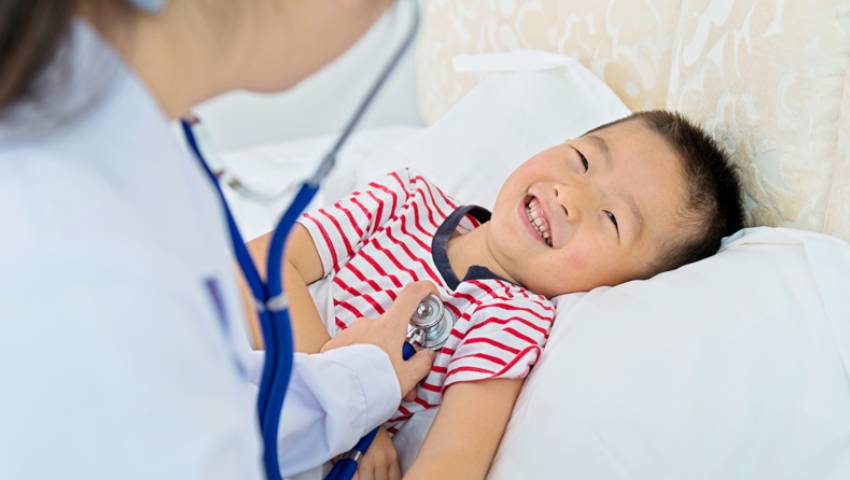
- 12/07/2024
- Goodfaith Healthcare
- 0 Comments
- Blogs
Pediatric Emergency Care When to Seek Immediate Help
Every second counts in a medical emergency, especially when it involves your child. Knowing when to seek immediate help for Pediatric Emergency Care can make all the difference. Dr. Anuja Pakhare, the best Pediatrician in Hinjewadi at Goodfaith Healthcare Clinic, offers expert guidance on recognizing pediatric emergencies and ensuring your child receives timely and appropriate care.
10 Conditions Recognizing Pediatric Emergencies:
Fever in Infants:
Fever is a common symptom in children, but in infants under three months old, it can be a sign of a serious infection. Seek immediate medical attention if:
- Your infant has a rectal temperature of 100.4°F (38°C) or higher.
- The fever is accompanied by a rash, difficulty breathing, or inconsolable crying.
Breathing Difficulties:
Breathing issues can quickly become life-threatening. Look out for:
- Rapid or labored breathing.
- Blue or pale lips, face, or fingernails.
- Persistent coughing or wheezing.
- Stridor (a high-pitched, noisy sound while breathing).
Severe Allergic Reactions:
Allergic reactions can escalate rapidly. Get emergency assistance if your child exhibits
- Swelling of the face, lips, or tongue.
- Difficulty breathing or swallowing.
- Hives or widespread rash.
- Severe abdominal pain or vomiting.
Head Injuries:
Head injuries can be particularly concerning in children. Get your child medical help right away if they encounter:
- Loss of consciousness, even briefly.
- Persistent vomiting.
- Severe headache or changes in behavior.
Severe Dehydration:
Dehydration can result from illnesses like gastroenteritis. Signs of severe dehydration include:
- Dry mouth and tongue.
- No tears when crying.
- Sunken eyes or cheeks.
- Decreased urine output (no wet diapers for several hours in infants).
Persistent Pain:
Pain that does not subside or is severe can indicate a serious condition. If your child has any of the following, get emergency attention.
- Severe abdominal pain.
- Intense headaches.
- Painful urination or difficulty passing urine.
Seizures:
Seizures can be frightening and require immediate attention. Make an urgent help call if your child:
- Has a seizure lasting more than five minutes.
- Does not regain consciousness after a seizure.
- Has difficulty breathing or appears blue.
Poisoning:
Accidental ingestion of medications, household chemicals, or plants can be dangerous. If you suspect poisoning, contact emergency services immediately and provide as much information as possible about the substance ingested.
Uncontrollable Bleeding:
Cuts and wounds that do not stop bleeding after applying pressure for 10 minutes require urgent medical attention. Additionally, seek help if:
- The wound is deep or gaping.
- The wound has an implanted object.
- The injury involves the head, chest, or abdomen.
High-Impact Injuries:
High-impact injuries, such as those from falls or car accidents, can result in internal injuries that are not immediately apparent. Get your child emergency care if they have:
- Persistent pain or swelling.
- Difficulty moving or using a limb.
- Visible deformities or bones protrude through the skin.
Preparing for Pediatric Emergencies:
Being prepared can help you respond effectively in an emergency. You can do the following actions:
- Keep Emergency Contacts Handy: Have a list of important phone numbers, including your pediatrician, local emergency services, and poison control, easily accessible. At Goodfaith Healthcare Clinic, Dr. Anuja Pakhare and her team are always available for consultations and emergencies.
- Know Basic First Aid: Learning basic first aid can help you manage minor injuries and stabilize your child until professional help arrives. A pediatric first aid and CPR course might be worth taking.
- Create a Safe Environment: Childproof your home to prevent accidents. Secure furniture, keep hazardous substances out of reach and ensure safe play areas for your child.
- Have a Plan: Discuss and practice emergency plans with your family. Make sure that in an emergency, everyone is aware of what to do and where to go.
Recognizing the signs of pediatric emergencies and knowing when to seek immediate help can save lives. Dr. Anuja Pakhare, the best Pediatrician in Hinjewadi, and her team at Goodfaith Healthcare Clinic are dedicated to providing exceptional care for your child. By staying informed and prepared, you can ensure your child receives the best possible care when it matters most. For any pediatric health concerns, don’t hesitate to book an appointment with Goodfaith Healthcare Clinic. Your child’s health and well-being are our top priorities.
